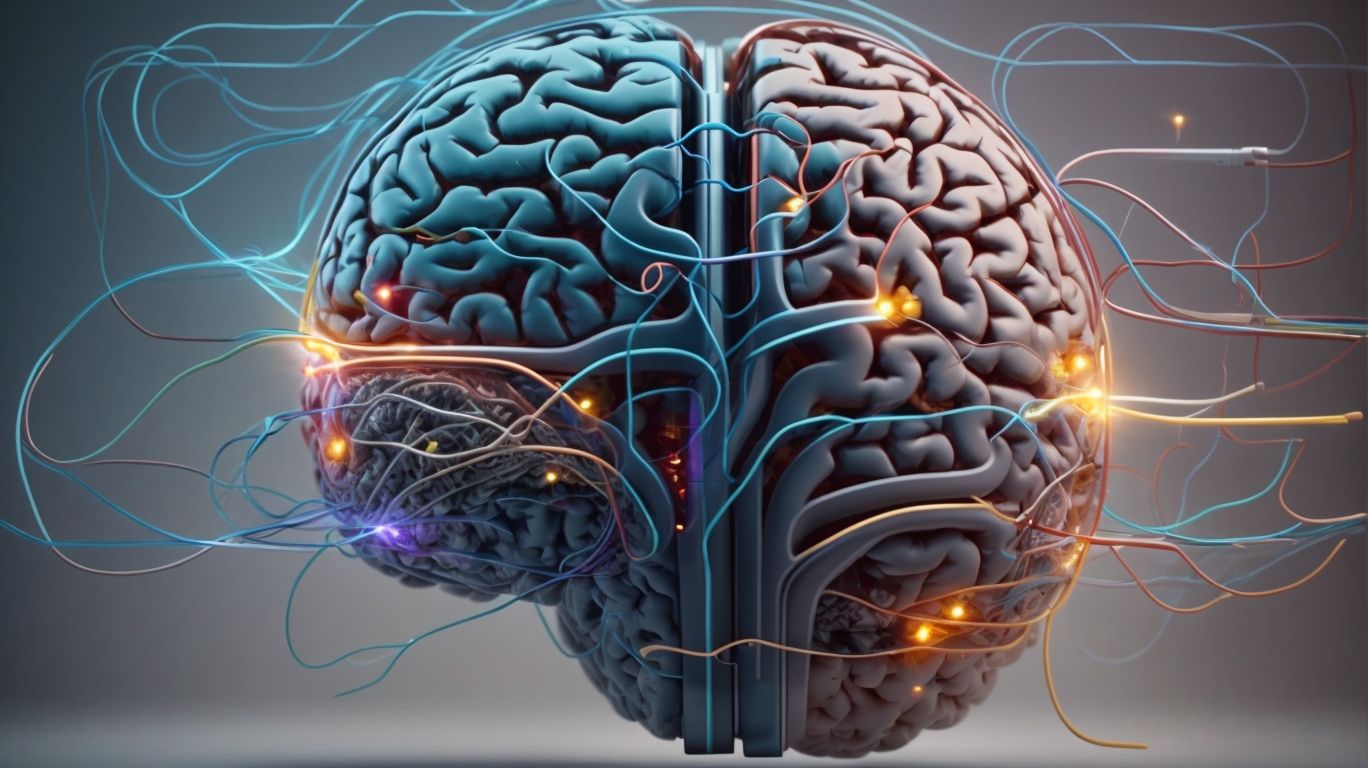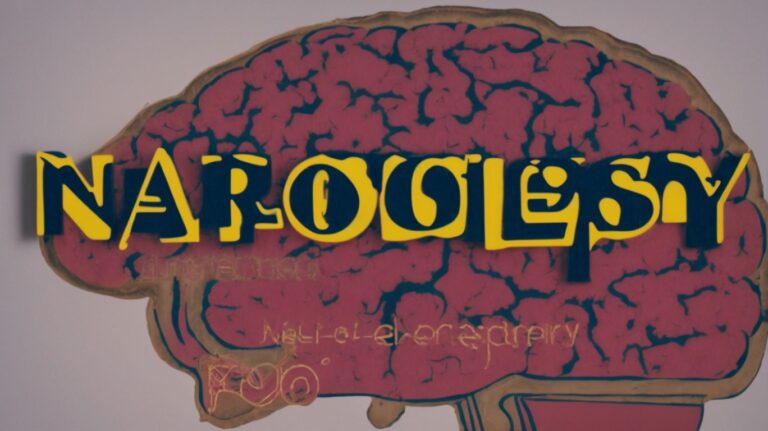Have you ever wondered how the brain develops from prenatal stages to adulthood, and how it influences our psychology? Understanding brain development is crucial in comprehending the complexities of human behavior, emotions, and cognitive abilities.
In this article, we will explore the stages of brain development, the changes that occur in different life stages, factors that influence brain development, and the impact of brain development on psychology. We will also discuss ways to support healthy brain development for optimal psychological well-being. So, let’s dive into the fascinating world of brain development and its connection to psychology.
Contents
- 1 Key Takeaways:
- 2 What Is Brain Development?
- 3 What Are the Stages of Brain Development?
- 4 How Does the Brain Develop in Different Stages of Life?
- 5 What Factors Influence Brain Development?
- 6 How Does Brain Development Affect Psychology?
- 7 How Can We Support Healthy Brain Development?
- 8 Frequently Asked Questions
- 8.1 What is meant by exploring brain development in the context of psychology?
- 8.2 How does the brain develop during infancy and childhood?
- 8.3 What is the relationship between brain development and behavior?
- 8.4 How does exploring brain development inform our understanding of psychological disorders?
- 8.5 What techniques are used in exploring brain development in the context of psychology?
- 8.6 How does brain development differ between individuals?
Key Takeaways:
- Brain development occurs in different stages throughout life, from prenatal to adulthood.
- Genetics, environment, nutrition, and experiences all play a role in brain development.
- Brain development has a significant impact on behavior, cognitive abilities, and mental health, making it important to support healthy development through nurturing environments and healthy habits.
What Is Brain Development?
Brain development refers to the process of growth and maturation of the brain, impacting cognitive skills and overall mental health. This intricate process involves the formation of neural connections and the establishment of cognitive abilities.
Early brain development is crucial as it lays the foundation for a range of cognitive functions such as attention, memory, and language processing.
Neuroimaging techniques, including MRI and fMRI, have revolutionized our understanding of the brain’s structural and functional changes during development. These techniques enable researchers to investigate the intricate neural networks and patterns that underpin cognitive processes and mental health.
What Are the Stages of Brain Development?
The stages of brain development encompass distinct periods from prenatal to adulthood, influenced by psychological theories such as those proposed by Piaget and Vygotsky. Understanding these stages is crucial for comprehending cognitive and emotional advancements.
Prenatal Brain Development
Prenatal brain development occurs in the womb, marking the initial phase of neural growth and cognitive skill formation in the developing fetus. This stage lays the foundation for future cognitive abilities and perceptual skills.
During this critical period, the embryonic brain rapidly develops with the formation of billions of neurons, the building blocks of the central nervous system.
Neural proliferation progresses as the neural tube, the precursor to the brain and spinal cord, undergoes rapid expansion. Simultaneously, the differentiation of neurons into various specialized types begins, setting the stage for the complex circuitry of the brain.
Concurrently, synaptic connections are established, laying the groundwork for future brain communication and coordination. The fetus’ cognitive skills start to take shape as early as the second trimester, with the formation of basic sensory systems that enable responsiveness to external stimuli, including sound, light, and touch.
Infancy Brain Development
Infancy brain development encompasses the rapid growth of cognitive skills, explicit memory formation, and the gradual maturation of perceptual abilities. This stage lays the groundwork for future cognitive and perceptual advancements.
During the first year of life, infants exhibit remarkable developments in cognitive skills, such as attention, problem-solving, and language acquisition.
The formation of explicit memory allows them to retain and recall information, influencing their learning and behavior.
As they progress, infants display significant milestones in perceptual abilities, including depth perception, visual tracking, and auditory discrimination.
These developments are pivotal for their understanding of the surrounding world and interactions with caregivers.
Childhood Brain Development
Childhood brain development is characterized by the refinement of working memory, the advancement of decision-making abilities, and the progression of reasoning skills. These developments shape the cognitive landscape during this formative period.
Working memory is a crucial aspect of cognition that experiences significant improvement during childhood. This enhancement allows children to better retain and manipulate information.
Simultaneously, the development of decision-making abilities give the power tos children to evaluate situations, consider different options, and make informed choices. This growth in autonomy and adaptive behavior is vital for their overall development.
As reasoning skills continue to develop, children are able to think critically and solve problems more effectively. These skills are essential for success in both academic and social settings, making their progression a crucial aspect of childhood development.
Adolescence Brain Development
Adolescence brain development encompasses the consolidation of implicit memory, the refinement of language skills, and the maturation of neural connections. These pivotal developments shape cognitive abilities during the teenage years.
The consolidation of implicit memory is crucial during adolescence as it involves the storage and retrieval of information without conscious awareness. This plays a significant role in learning and decision-making processes.
The refinement of language skills, including syntax, semantics, and pragmatics, fosters effective communication and cognitive flexibility.
Simultaneously, the maturation of neural connections enhances information processing speed and complex reasoning, contributing to the overall cognitive development during this critical stage of life.
Adulthood Brain Development
Adulthood brain development involves the culmination of reasoning abilities, the refinement of perceptual skills, and the consolidation of cognitive advancements. These developments contribute to cognitive stability and decision-making capacities.
Reasoning abilities, a critical component of adult brain development, reach their peak during this stage. This is when individuals become adept at complex problem-solving and critical thinking, enabling them to make informed decisions and judgments.
In addition, the refinement of perceptual skills, such as visual processing and auditory discrimination, occurs, further enhancing their ability to interpret and respond to their surroundings.
The consolidation of cognitive advancements involves the integration of knowledge, memory, and learning acquired throughout life.
This process contributes to an individual’s ability to draw from past experiences, evaluate situations, and plan for the future, ultimately supporting their overall cognitive stability.
As adulthood progresses, these components of brain development collectively contribute to an individual’s cognitive prowess, influencing their interactions, decision-making, and adaptability to new challenges.
How Does the Brain Develop in Different Stages of Life?
The brain undergoes distinct developmental trajectories across different stages of life, encompassing physical, cognitive, and emotional changes. Understanding these developmental variations is vital for comprehending the intricacies of cognitive maturation.
During early childhood, rapid synaptic growth and pruning lead to significant changes in cognitive abilities and emotional regulation.
As individuals transition into adolescence, the prefrontal cortex continues to develop, impacting decision-making and social behavior.
The brain’s plasticity allows for continued learning and adaptation across adulthood, while aging presents its unique set of cognitive changes, including memory consolidation and processing speed decline.
These diverse developmental patterns underscore the dynamic nature of the human brain, shaping our experiences and interactions throughout life.
Physical Changes in the Brain
Physical changes in the brain involve the maturation of neural structures and connections, a process that can be observed and studied through neuroimaging techniques such as magnetic resonance imaging (MRI) and diffusion tensor imaging (DTI).
These changes play a pivotal role in cognitive and emotional advancements.
As the brain develops, neural maturation leads to increased myelination, synaptic pruning, and the formation of complex neural networks, which contribute to enhanced cognitive functions and emotional regulation.
Neuroimaging techniques like MRI provide detailed images of structural changes, while DTI maps the white matter pathways and connectivity, offering insights into the development and organization of the brain’s intricate neural circuitry.
Cognitive Changes in the Brain
Cognitive changes in the brain involve the refinement of cognitive skills, the development of working memory, and the progression of decision-making abilities. These changes contribute to the enhancement of cognitive capabilities across different life stages.
The refinement of cognitive skills is a complex process that encompasses various aspects such as attention, perception, learning, and problem-solving.
As individuals age, they experience cognitive transformations, and their working memory evolves, enabling them to process and retain information more efficiently. This progression of working memory plays a vital role in shaping individuals’ intellectual growth and adaptability.
The development of decision-making abilities is fundamental in navigating the complexities of daily life, as individuals learn to make more informed and effective choices based on their accumulated cognitive experiences.
Emotional Changes in the Brain
Emotional changes in the brain involve the maturation of emotional regulation, the consolidation of social cognitive skills, and the establishment of resilience, influenced by factors such as mental health and ecological systems theory. These changes play a crucial role in emotional well-being and psychological development.
Emotional regulation encompasses the ability to understand, manage, and express emotions in a healthy and adaptive manner. It involves the development of self-awareness, coping strategies, and empathy, which are essential for navigating complex emotional experiences.
The consolidation of social cognitive skills, including perspective-taking, social cue interpretation, and theory of mind, enables individuals to engage effectively in social interactions and build meaningful relationships.
The establishment of resilience, influenced by factors such as mental health and ecological systems theory, is pivotal for adapting to stress and adversity. It involves the capacity to bounce back from challenges, maintain a sense of hope, and seek support from one’s social network.
The interaction between these emotional changes fosters a foundation for emotional well-being and psychological development, significantly impacting an individual’s overall quality of life and social functioning.
What Factors Influence Brain Development?
Several factors influence brain development, including genetic predispositions, environmental stimuli, nutritional intake, and diverse experiences. Understanding the interplay of these factors is crucial for comprehending the complexities of cognitive and emotional maturation.
Genetic predispositions play a fundamental role in shaping the developmental trajectory of the brain. Certain genes can influence neural connectivity, synaptic pruning, and neurotransmitter function.
Environmental stimuli, such as early childhood experiences and exposure to stress or trauma, can also have profound effects on brain structure and function. These factors shape cognition, emotion regulation, and stress response.
Moreover, nutritional intake is a critical determinant of brain development. Essential nutrients, such as omega-3 fatty acids, choline, and various vitamins and minerals, play pivotal roles in neuronal growth, myelination, and synaptic plasticity.
In addition, diverse experiences, including language exposure, social interactions, and cognitive stimulation, contribute to the complexity and adaptability of the brain’s neural networks. This fosters enhanced cognitive flexibility, social acumen, and emotional intelligence.
Genetics
Genetic factors play a significant role in brain development, influencing the establishment of cognitive abilities and neurological maturation. Scholars like Urie Bronfenbrenner have highlighted the interplay of genetics in shaping cognitive landscapes.
The influence of genetics extends to various aspects of brain growth, from the formation of neural pathways to the development of neurotransmitter systems.
Research has shown that genetic variations can lead to differences in the size and structure of brain regions, impacting functions such as memory, attention, and language processing.
Additionally, genetic predispositions can contribute to susceptibility to certain neurological conditions, affecting an individual’s overall cognitive functioning.
Understanding these genetic influences provides valuable insights into the complexities of brain development and cognitive abilities.
Environment
The environment exerts a profound influence on brain development, encompassing educational practices, social interactions, and intellectual stimuli. Understanding the impact of the environment is crucial for comprehending cognitive and emotional advancements.
Research shows that educational practices, including access to quality education, teacher-student interactions, and learning environments, significantly shape brain development.
Moreover, social interactions play a vital role in fostering emotional intelligence, communication skills, and empathy, thereby impacting neural pathways.
Exposure to diverse intellectual stimuli, such as reading, problem-solving activities, and engaging discussions, is essential for cognitive growth and the formation of neural networks.
Nutrition
Nutritional intake plays a crucial role in brain development, impacting cognitive skills, neural connectivity, and overall cognitive maturation. Insights from organizations like the National Institutes of Health shed light on the importance of nutrition in cognitive and emotional well-being.
Optimal nutrition during early development is essential as it provides the necessary building blocks for the formation of neural pathways and neurotransmitters. Nutrients such as omega-3 fatty acids, found in fish and nuts, are crucial for healthy brain function and cognitive performance.
Vitamins and minerals, including B vitamins and iron, are important for energy metabolism and oxygen transport to the brain. Research indicates that a diet rich in antioxidants, such as those found in fruits and vegetables, can protect the brain from oxidative stress and support cognitive function.
The role of healthy fats, such as those in avocados and olive oil, is also significant in enhancing neural communication and promoting overall brain health.
Experiences and Learning
Experiences and diverse learning opportunities shape brain development, influencing developmental milestones and cognitive progress.
Insights from institutions like the National Research Council provide valuable perspectives on the role of experiences in cognitive and emotional maturation.
It has been observed that exposure to stimulating environments aids in the formation of neural connections and enhances the development of various skills and abilities.
The plasticity of the brain allows for adaptation and response to new experiences, shaping the individual’s outlook and behavior. Understanding the impact of experiences on brain development is crucial in promoting optimal growth and learning in individuals.
How Does Brain Development Affect Psychology?
Brain development exerts a profound influence on psychology, shaping behavior, cognitive abilities, and mental health. Understanding the nexus between brain development and psychology is vital for comprehending cognitive and emotional well-being.
The intricate process of brain development, encompassing neurogenesis, synaptogenesis, and myelination, lays the foundation for an individual’s psychological makeup.
The dynamic interplay between genetic predispositions and environmental stimuli during critical periods in development can significantly impact neural connections, neurotransmitter function, and synaptic pruning, thus shaping an individual’s behavioral tendencies, emotional responses, and cognitive functioning.
Similarly, disruptions or alterations in brain development, whether due to genetic vulnerabilities, prenatal influences, or adverse experiences, can lead to long-term consequences for psychological well-being and mental health, affecting an individual’s ability to regulate emotions, process information, and engage in adaptive behaviors.
Impact on Behavior and Emotions
Brain development significantly influences behavior and emotions, shaping decision-making processes, cognitive-behavioral patterns, and psychological well-being. Understanding this influence is pivotal for addressing cognitive and emotional challenges.
As the brain develops, it undergoes intricate changes that impact various psychological functions, including decision-making, cognitive-behavioral patterns, and emotional responses.
These changes form the foundation on which an individual’s behavior and emotions are constructed.
The structured and ongoing development of the brain can significantly influence an individual’s capacity to manage decision-making processes, navigate complex scenarios, and regulate emotions effectively.
Influence on Cognitive Abilities
Brain development significantly influences cognitive abilities, impacting reasoning skills, working memory, and the processing of perceptual information. These influences underpin the complexities of cognitive maturation and decision-making capacities.
As the brain undergoes developmental stages, the intricate connections between neurons, the growth of neural pathways, and the refinement of synaptic networks play a crucial role in shaping cognitive functions.
The prefrontal cortex, responsible for executive functions such as problem-solving and decision-making, experiences substantial changes during development, profoundly impacting reasoning abilities.
The maturation of working memory allows for the efficient retention and manipulation of information, significantly enhancing cognitive capacities.
Connection to Mental Health
Brain development is intricately connected to mental health, encompassing the consolidation of explicit memory, psychological well-being, and the potential benefits of positive psychology exercises. Understanding this connection is crucial for addressing mental health challenges.
The development of the brain, particularly during crucial stages such as childhood and adolescence, plays a pivotal role in shaping mental health outcomes.
Research has shown that the formation of explicit memories, which involve consciously recalled information, is linked to the structural and functional aspects of the brain.
Moreover, psychological well-being encompasses various factors such as emotional regulation, resilience, and social connections, all of which are influenced by brain development.
How Can We Support Healthy Brain Development?
Supporting healthy brain development involves providing a nurturing environment, encouraging healthy habits and activities, and seeking professional help if needed.
Children benefit greatly from an enriched environment with ample opportunities for sensory stimulation and learning experiences. Ensuring access to nutritious food, regular physical activity, and sufficient sleep is crucial for their overall well-being.
Creating a balanced routine, incorporating interactive play, and engaging in creative pursuits all contribute to their cognitive development and emotional resilience.
When facing challenges that may affect brain development, seeking assistance from qualified professionals such as pediatricians and child psychologists becomes imperative for tailored support.
Providing a Nurturing Environment
Providing a nurturing environment is crucial for promoting healthy brain development, as highlighted by the insights from the Child Development Institute and the perspectives of American psychologists. This approach lays the groundwork for cognitive and emotional well-being.
Research affirms that a nurturing environment fosters positive brain development, shaping the foundation for lifelong health and well-being.
The Child Development Institute underlines the profound impact of supportive surroundings on cognitive growth, emotional resilience, and overall mental health.
It emphasizes the critical role of responsive caregiving, enriching stimuli, and secure attachments in shaping neural pathways and neural plasticity.
Similarly, American psychologists underscore that a nurturing environment cultivates a strong, adaptive brain architecture, optimizing the potential for learning, resilience, and socio-emotional development.
Encouraging Healthy Habits and Activities
Encouraging healthy habits and activities is instrumental in supporting brain development, as advocated by the National Library of Medicine and cognitive development psychology. These practices contribute to cognitive and emotional well-being.
Regular physical activity, proper nutrition, quality sleep, and engaging in mental exercises all play significant roles in nurturing a healthy brain.
Physical activity stimulates blood flow to the brain, promoting the growth of new neurons and enhancing cognitive function. A balanced diet with essential nutrients supports overall brain health, while adequate sleep allows the brain to consolidate and process information efficiently.
Mental exercises such as puzzles, reading, and learning new skills help maintain cognitive function and can even ward off age-related cognitive decline.
Seeking Professional Help if Needed
Seeking professional help if needed is essential for addressing complex challenges in brain development, with interventions like cognitive-behavioral therapy highlighted by resources such as the National Academies Press. Professional support is crucial for maintaining cognitive and emotional well-being.
It is imperative to recognize the value of seeking assistance from qualified professionals to address the multifaceted issues related to brain development.
Cognitive-behavioral therapy has emerged as a prominent intervention that offers individuals practical strategies to manage thoughts, emotions, and behaviors that influence brain function. This approach not only aids in addressing specific cognitive and emotional challenges but also fosters holistic well-being.
Frequently Asked Questions
What is meant by exploring brain development in the context of psychology?
Exploring brain development in the context of psychology refers to the study of how the brain changes and develops throughout a person’s life, and how this development impacts their psychological functioning and behavior.
How does the brain develop during infancy and childhood?
During infancy and childhood, the brain undergoes rapid development and growth, with neurons forming new connections and pathways. This process is influenced by genetics, environment, and experiences.
What is the relationship between brain development and behavior?
Brain development plays a crucial role in shaping behavior, as the brain controls all of our thoughts, emotions, and actions. Changes in brain structure or function can impact behavior and vice versa.
How does exploring brain development inform our understanding of psychological disorders?
Studying brain development can provide insights into the mechanisms underlying psychological disorders and help us develop more effective treatments. It can also help identify potential risk factors and preventative measures.
What techniques are used in exploring brain development in the context of psychology?
Researchers use a variety of techniques to explore brain development, including brain imaging technologies, genetic analysis, and behavioral assessments. These methods allow for a better understanding of the brain’s structure, function, and development.
How does brain development differ between individuals?
Brain development is a highly individualized process, influenced by genetics, environment, and experiences. This means that each person’s brain develops at a unique pace and may have different patterns of growth and connectivity.




